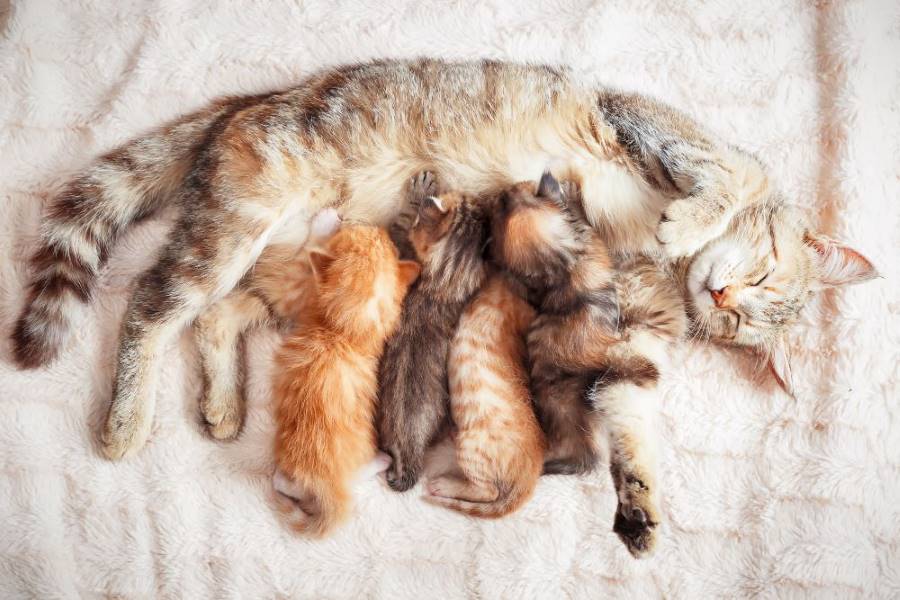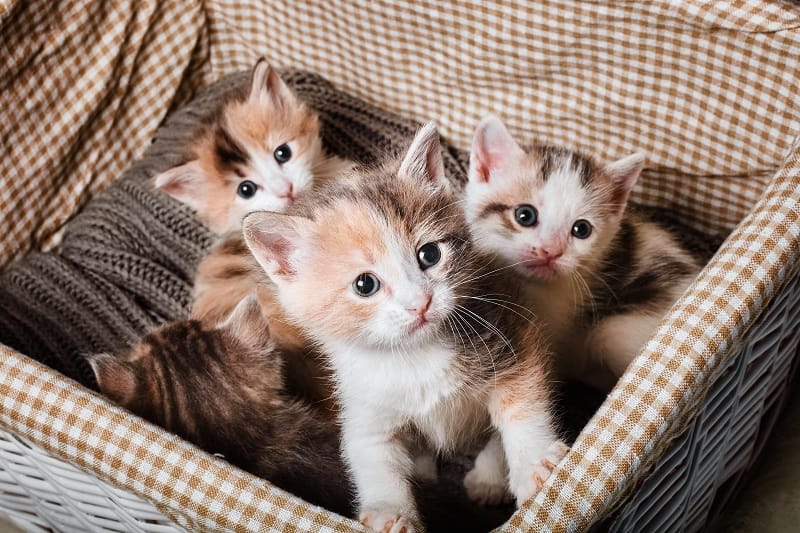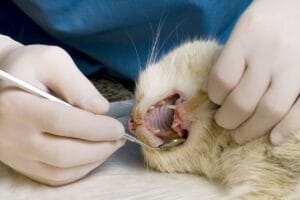Is it Cruel to Separate Kittens from their Mother?

There is a common belief that kittens should not be separated from their mother too soon. But what exactly is too soon? Is it cruel to separate them at a certain age? And are there any exceptions to this rule? In this article, we will discuss whether it is cruel to separate kittens from their mother, and explore the different factors that come into play.
Why is Separating Kittens from their Mother a Concern?
The separation of kittens from their mother is a common concern among animal lovers. This is because kittens rely heavily on their mother during the first few weeks of their lives. The mother cat provides them with essential needs such as food, warmth, and protection, while also teaching them vital skills like grooming and socialization. Similarly, the mother cat is also highly attached to her kittens, and separating them from her too early might cause her great distress.
For the above mentioned reasons, the misconception was born that it is cruel to separate kittens from their mother.
However, it’s important to note that the separation of kittens from their mother is a natural process that occurs regardless. Moreover, there are various reasons why separating a kitten from its mother can be beneficial for both of them.
- Avoiding Overcrowding: If the mother cat gave birth to a large litter, it may be necessary to separate the kittens to avoid overcrowding.
- Reducing Stress: If the mother cat is stressed or anxious, it can affect the kittens’ health and behavior. Separating the kittens and providing them with a calm and quiet environment can help reduce stress for both the mother and the kittens.
- Medical Reasons: If the mother cat is sick or has a medical condition that could be passed on to the kittens, it may be necessary to separate them to prevent the spread of the illness. Kittens have weakened immune systems, so extra care must be taken.
- Adoption: If the kittens are going to be adopted, they will eventually need to be separated from their mother. Separating them at an appropriate age can make the transition smoother for both the kittens and their new families.

When is it “Not” Cruel to Separate Kittens from their Mother?
While there is no one-size-fits-all answer to this question, most experts agree that kittens should not be separated from their mother before they are at least eight weeks old. During this time, the kittens are still nursing and are not yet fully weaned. Separating them too early can lead to malnourishment, weakened immune systems, and socialization issues.
Although eight weeks is a minimum requirement, it is recommended to let the kittens stay with their mother until they reach 12 weeks of age. This extended time with their mother and littermates allows the kittens to continue learning important social skills and behaviors that will benefit them throughout their lives. It also ensures that they are fully weaned and have received the necessary nutrients and antibodies from their mother’s milk. This helps them strengthen their immune system and overall health.
At around this time, the mother cat typically starts to become less attached to her kittens, which can facilitate the separation process.
Exceptions to the Rule
However, there are some exceptions to this rule. For example, if the mother cat is feral or unable to care for her kittens due to health issues, it may be necessary to separate the kittens earlier than eight weeks old.
Feral cats have not been socialized with humans and are typically fearful of people. It is often necessary to separate them early in order to socialize the kittens and make them more adoptable.
If you are faced with the task of separating feral kittens from their mother, it’s important to take the proper precautions to ensure the safety of both the kittens and yourself. It’s advisable to seek the help of a local animal rescue organization or veterinarian who can provide guidance and assistance with the process.
Do Cat Breeds Play a Role in Separation?
Different cat breeds may have different needs when it comes to separation. For example, some breeds, such as Siamese and Burmese, tend to be more social and may benefit from staying with their littermates and mother for a longer period of time. On the other hand, breeds such as Maine Coons and Persians may be more independent and may be able to adapt to separation earlier.
However, it is important to keep in mind that these are generalizations. Each cat is an individual with its own unique personality and needs. Each cat should be evaluated on a case-by-case basis.

The Separation Process
If it is necessary to separate a kitten from its mother, it is important to do so in a way that minimizes stress and ensures the kitten’s well-being. Here are some tips:
- Plan ahead: Make sure you have all the supplies you need. This includes food, water, litter box, and a warm place for the kitten to sleep.
- Gradual separation: If possible, it’s best to separate the kitten from its mother gradually, over a period of several days. This allows the kitten to adjust to its new environment and reduces the stress of sudden separation. This will also be beneficial for the mother cat, as it will allow the milk to dry up gradually. (Prevents the engorgement of the mammary glands)
- Socialization: Spend time socializing with the kitten, playing with it, and providing it with plenty of love and attention. This will help the kitten to feel secure and develop a bond with you.
- Proper nutrition: Make sure the kitten is getting proper nutrition, either through nursing or with formula. Consult with a veterinarian if you have any questions or concerns.
- Veterinary care: Schedule a visit with a veterinarian to make sure the kitten is healthy and up-to-date on vaccinations.
Even in the event of a successful separation, it is not uncommon for a kitten to become a little lonely. They may even cry or meow often, especially during the first few nights. It is important that you keep socializing with the kitten(s) and giving it the attention it needs.
Conclusion
In conclusion, it is generally recommended to wait until kittens are at least 8-12 weeks old before separating them from their mother. However, there are exceptions to this rule. Separating kittens can be beneficial for both the mother and the kittens in certain circumstances. Such as overcrowding, medical reasons, and adoption. It is important to take proper precautions to ensure the separation process is done gradually. This will help minimize stress and ensure the kittens’ well-being. With proper care, kittens can thrive even if separated from their mother at a young age.


